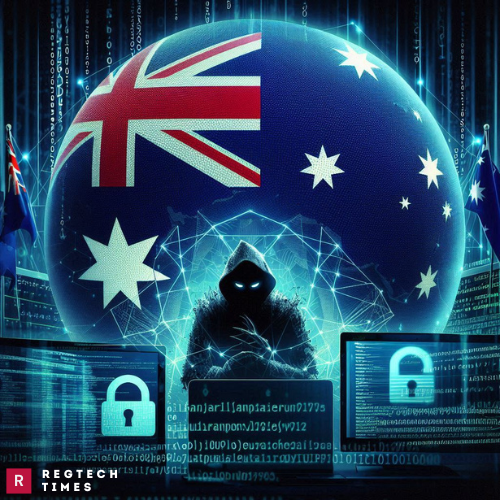The AUKUS alliance, comprising Australia, the UK, and the US, has launched a significant new effort to combat cybercrime by imposing sanctions on members of the notorious Russia-backed cybercrime group, Evil Corp. This collective action targets individuals responsible for ransomware attacks that have disrupted governments, healthcare institutions, and private entities across the globe. With sanctions levied on key members of Evil Corp and ongoing international cooperation, this move represents a coordinated effort to address the escalating threat of cybercrime.
Evil Corp: A Global Cyber Threat
Evil Corp is a well-known cybercriminal group, infamous for launching cyberattacks and deploying ransomware to extort victims, often resulting in millions of dollars in financial losses. The group primarily targets institutions in Europe and the United States, exploiting computer systems to steal sensitive data, encrypt files, and demand large ransom payments.
Operating with a mafia-like structure, Evil Corp has been linked to cyberattacks in over 40 countries, with damages exceeding $100 million in the US alone. Their highly sophisticated malware and ransomware campaigns have caused significant disruptions, particularly in vital sectors like government services, healthcare, and critical infrastructure. These attacks have not only drained financial resources but also crippled public services, sometimes endangering lives.
AUKUS Strikes Back: Coordinated Sanctions
In response to the growing threat posed by Evil Corp, the AUKUS alliance announced sanctions on the group’s leadership and associates. The coordinated action involves three main components:
Australia’s Measures
Australia has made it a criminal offense to engage in financial dealings with three senior members of Evil Corp: Maksim Viktorovich Yakubets, Igor Olegovich Turashev, and Aleksandr Viktorovich Ryzhenkov. The individuals have been identified as key figures in Evil Corp’s operations and have been blacklisted under Australia’s cyber sanctions.
Australian Foreign Affairs Minister Penny Wong emphasized that this move reflects Australia’s commitment to promoting a “rules-based cyberspace” and upholding international law to ensure responsible state behavior online. Additionally, Cyber Security Minister Tony Burke stressed that these sanctions are part of Canberra’s broader commitment to work alongside international partners to combat organized cybercrime and shut down groups like Evil Corp that profit from ransomware.
The sanctions also include a travel ban on the three individuals, effectively preventing them from entering Australia.
Powerful Blowback to China: 20 Indo-Pacific Countries Unite in Exercise Pitch Black
Sanctions by the US
The US government, through the Department of Justice, has taken further steps by imposing penalties on seven associates of Evil Corp as well as two additional individuals connected to the group’s operations. The group’s leader, Maksim Viktorovich Yakubets, has been a long-time target of the US authorities. He faces an indictment in the US for facilitating ransomware attacks on American businesses and government agencies.
Yakubets remains one of the most wanted cybercriminals globally, with a $5 million bounty on his head, which the US government has offered for information leading to his capture. This indictment further solidifies the US’s stance on cybercrime, especially ransomware attacks that have caused significant economic damage and compromised national security.
The UK’s Response:
The UK government has sanctioned 16 individuals tied to Evil Corp, including Yakubets, following the AUKUS-led investigation. British officials emphasized that this action sends a strong message: there will be serious consequences for those engaged in malicious cyber activity.
UK Security Minister Dan Jarvis remarked that cybercrime causes immense harm to individuals and businesses worldwide, but these sanctions demonstrate the international community’s resolve to hold cybercriminals accountable. The UK’s efforts to collaborate with partners like Australia and the US illustrate the importance of unified action in fighting cybercrime on a global scale.
South Korea to Strengthen Anti-China Alliance AUKUS as Pillar 2 Partner
The Global Impact of Cybercrime
The sanctions against Evil Corp highlight the seriousness of the ransomware epidemic, which has emerged as one of the most pressing cybersecurity challenges of the 21st century. Ransomware attacks have increased in frequency and scale over the past decade, with criminal groups like Evil Corp exploiting vulnerabilities in computer systems to carry out their attacks. These disruptions have affected essential services, from hospitals to water supply systems, and have inflicted significant financial losses.
In many cases, ransomware attacks not only lead to the theft of sensitive data but also compromise critical infrastructure, posing risks to public safety. Governments and institutions face difficult choices: either pay hefty ransoms to recover their systems or endure costly and time-consuming restoration processes. With the rise of state-backed cyber actors, often operating with the tacit approval of hostile governments, the need for robust international cooperation has never been greater.
The AUKUS sanctions on Evil Corp’s members represent a landmark in the global fight against ransomware and cybercrime. By targeting the individuals behind these criminal activities and leveraging collective sanctions, Australia, the UK, and the US have demonstrated the power of international collaboration in disrupting malicious cyber actors. As ransomware continues to pose a significant threat to public safety and global economies, coordinated actions like these are vital in safeguarding critical infrastructure, protecting citizens, and upholding a secure and responsible cyberspace.


